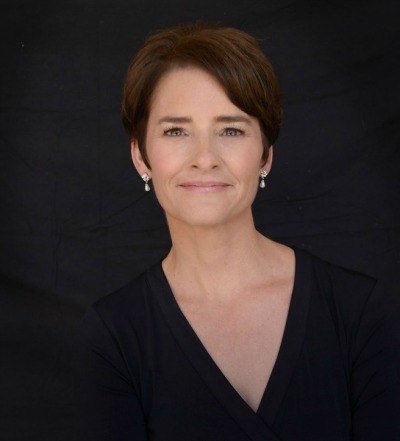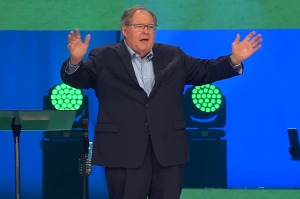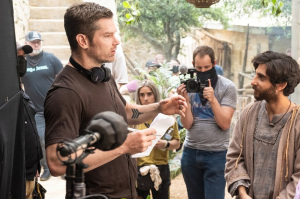Do Wheaton Professors Need Worldview Training?

In a Chicago Tribune article published Monday, I suggested that Wheaton College professors need worldview training. I'm sure that may sound presumptuous, given that most of them hold doctoral degrees, which I do not. Yet, the recent brouhaha sparked by Dr. Larycia Hawkins' statement that Muslims and Christians worship the same God has made it painfully clear that Wheaton's campus is a battleground of competing worldviews. And, if Wheaton College is going to restore its reputation in the Christian community, administrators need to confront these worldview differences head-on.
As Nancy Pearcey explains in Total Truth, a worldview is a like a comprehensive map of reality that helps us navigate life. And, every worldview answers three basic questions: How did we get here? (Origins) What caused human suffering? (Fall) And, how can things be made right again? (Redemption)
For Christians, the answers to these questions are plainly that God created us; sin caused human suffering; and Jesus' death on the cross provides the means of redeeming mankind and reversing the effects of the Fall.
Yet today, there are many competing worldviews that answer these questions in radically different ways. And unfortunately, we Christians are products of our culture, and rather than rejecting these alternate worldviews, we often syncretize them with our faith. Or, we compartmentalize our faith, restricting it to our private world, while essentially navigating our lives according to a completely different reality map.
Dr. Hawkins' Marxist Worldview
From the beginning, there were indications that Dr. Hawkins' statement and decision to wear a hijab "to show solidarity with Muslims" was motivated by an alternate worldview. Her constant references to oppressed and oppressor, and reliance on politics as the means of deliverance, betray a Marxist worldview, not a Christian one. This perhaps is not surprising, since as David A. Noebel documents in his book, Understanding the Times, Marxism reigns supreme on America's college campuses. And, though this may have been true of only secular universities decades ago, it is often the case at Christian colleges, too, where most professors are graduates of secular universities.
As Pearcey explains, Marxism, in its original form, is essentially an alternate religion. Instead of God creating the world, Marxists believe in dialectical materialism — the idea that matter contains a creative power within itself. (This is how Marxists remove the need for a designer of their world, which they explain as a machine.) Suffering, or the Fall, is caused by private property, which leads to the unequal distribution of goods and services. And, people achieve redemption when oppressed people overthrow their oppressors and redistribute wealth and power. Again, the Marxist worldview is incompatible with Christianity. It reduces reality to matter and economic forces, and has an entirely political means of achieving salvation.
Though Hawkins likely would reject the Marxist creation narrative, her rhetoric consistently betrayed what appeared to be a form of Christianized Marxism. Her initial gesture, for example, was an attempt to employ a political means to rectify her perceived oppression of Muslims.
"Our love for Jesus," Hawkins said, "compels us to make no peace with oppression because Christianity is political or it is not Christianity. That drove my solidarity with women in the hijab . . ."
Then, at her January 6 press conference, where Hawkins appeared with Rev. Jesse Jackson and Ahmed Rehab of the Council on American-Islamic Relations (CAIR), Hawkins revealed a commitment to another political battle to overthrow oppressors — that of organized labor.
"Solidarity with labor is not just a cause I'm committed to," Hawkins boasted. "It has become the fight of my life!"
Hawkins also mentioned that she served on the board of Arise Chicago, an interfaith organization that identifies "poverty's root causes" as "workers being paid improperly" and "workers receiving less than a living wage."
Again, to Marxists who divide the world into oppressed and oppressors, poverty is not primarily caused by sin, like fathers abdicating their role as providers. Instead, it's caused by the powerful elites oppressing the vulnerable. Interestingly, serving on Arise's Religious Advisory Board is actor Martin Sheen, a member of the Democratic Socialists of America and someone who once marched with Marxist labor organizer Cesar Chavez's National Farm Workers Association.
Other indications of Dr. Hawkins' Marxist worldview are revealed in her prior run-ins with Wheaton's administration. According to the Chicago Tribune, Wheaton chastened Hawkins nine years ago for writing an academic paper supporting black liberation theology. This is a Marxist-inspired theological perspective that sees Christianity as a means of liberating blacks from white oppression.
Hawkins also was reproved after allegedly attending a party in conjunction with Chicago's Pride Parade, again showing solidarity with a group often portrayed as an oppressed minority. As Pearcy explains in Finding Truth, diversity advocates borrow heavily from Marxists for their analysis: "some group is said to be victimized or oppressed, and the path to liberation is to revolt against the oppressors, often through political activism."





























